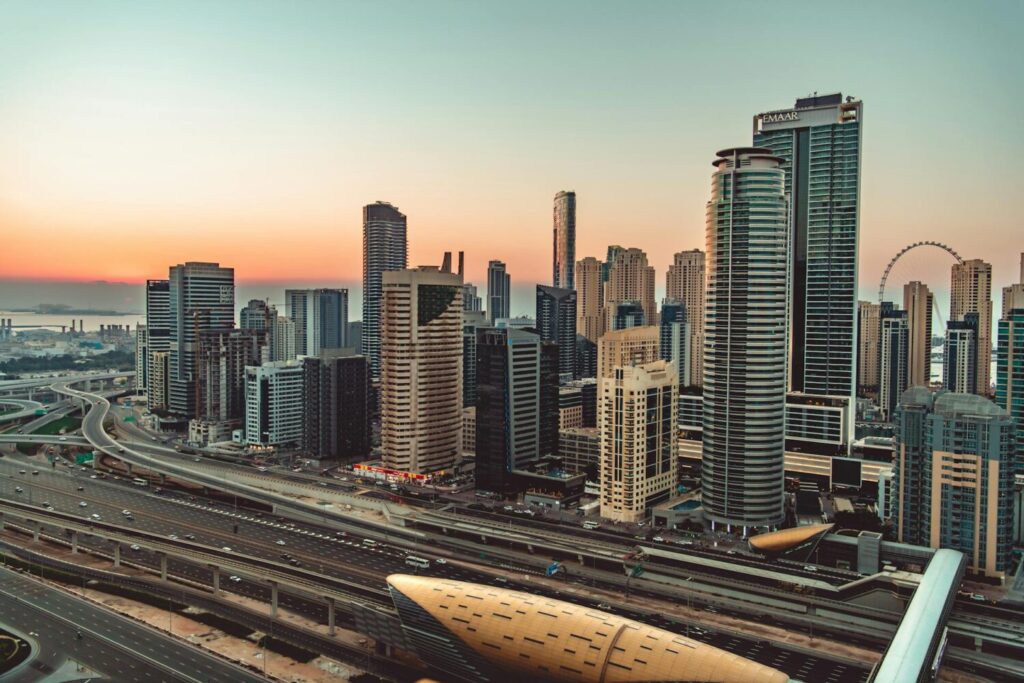By Technocrat’ Magazine Insights | September 19, 2025
In a move that’s sending shockwaves through Uganda’s labor export industry and family remittances, the United Arab Emirates (UAE) has announced a sweeping suspension of tourist and work visas for Ugandan nationals, effective January 2026.
The decision, confirmed by Uganda’s Minister of State for Foreign Affairs Henry Okello Oryem, isn’t a total shutdown but a severe tightening of rules aimed at curbing overstays, immigration abuses, and a spate of criminal activities linked to some travelers. For a nation that sends thousands of workers annually to the Gulf’s glittering skyscrapers, this could spell economic turbulence.

The Ban Breakdown: What’s Getting Shut Down?
The UAE’s immigration circular, dated September 17, 2025, explicitly bars new applications for long-term tourist and work permits from Ugandan citizens, alongside nationals from Cameroon, Sudan, Somalia, and a handful of other countries. Short-term visitor visas might still be available on a case-by-case basis, but expect razor-sharp scrutiny—think enhanced background checks, proof of intent to return, and possibly even financial guarantees.
- Affected Visas: Long-term tourist (beyond 30 days), standard work permits, and potentially family reunification or investor categories.
- Exemptions: Ugandans already in the UAE with valid permits can renew and stay put. No mass deportations announced—yet.
- Duration: Billed as “temporary,” but with no end date in sight. Past UAE bans on African nationalities have lingered for years.
This isn’t the UAE’s first rodeo with Uganda. Back in 2022, they rolled out 30-day visit visas only to yank them amid complaints of overstays turning into illegal job hunts. A 2024 amnesty let thousands of undocumented Ugandans slip home penalty-free, but the goodwill seems to have evaporated.
Why Now? Sex Scandals, Security Fears, and Overstay Epidemic
Whispers from diplomatic circles point to a toxic brew of factors fueling the clampdown. At the top? A bombshell BBC investigation earlier this year exposing a Dubai-based sex-trafficking ring allegedly run by Ugandan national Charles Mwesigwa. The report detailed the exploitation and deaths of young Ugandan women lured with job promises, only to end up in unmarked graves far from home. It’s a gut-wrenching tale that’s tarnished Uganda’s rep in the eyes of UAE authorities, who aren’t shy about protecting their ultra-secure, zero-tolerance vibe.Add to that:
- Overstay Stats: Uganda’s Ministry of Internal Affairs pegs 75,000 Ugandans as illegal residents in the UAE—many who arrived on tourist visas and never left. Another 1,500+ were repatriated just this year under waiver programs.
- Crime Links: Rising reports of petty theft, visa fraud, and cultural clashes, including “unruly behavior” that clashes with the UAE’s strict laws.
- Health and Geopolitics: Post-pandemic jitters over inconsistent vaccinations, plus broader tensions in regional migration flows.
Oryem downplayed it as “not a total ban,” telling Xinhua: “Some people will still go, but it will be based on the risk of a person overstaying their visa or failing to respect the laws and culture of the UAE.” Uganda’s not rushing to the negotiation table, but expect quiet backchannel talks to carve out carve-outs for vetted workers.

Economic Earthquake: Remittances at Risk, Families in Limbo
Uganda’s Gulf lifeline is fraying fast. The UAE hosts over 100,000 Ugandans—mostly in grueling gigs like domestic help, salon work, construction, and security. Women make up the bulk, chasing dollars to feed families back home. Annual deployments? Around 4,457 workers, funneling in remittances that top $1 billion yearly— a chunk of Uganda’s foreign exchange pie.
| Impact Area | Scale | Potential Fallout |
|---|---|---|
| Labor Export | 4,457 workers/year to UAE | Recruitment firms in Kampala grinding to a halt; families out thousands in visa fees. |
| Remittances | $1B+ annually from Gulf | Household incomes slashed; rural economies hit hardest. |
| Trade Ties | UAE = top export market | Merchants lose access to Dubai souks for electronics, fabrics, gold—disrupting $500M+ in bilateral trade. |
| Tourism/Leisure | Thousands of annual trips | Dream vacations to Burj Khalifa? On ice, hurting Uganda’s budding middle class. |
Recruiters are in panic mode, with contracts in limbo and agents warning of “financial losses for families who’ve already paid up.” One Kampala-based firm told CEO East Africa: “We’ve got hundreds of deals pending—now it’s all uncertainty.”
Voices from the Ground: Outrage, Denial, and Despair
On X (formerly Twitter), Ugandans are venting—and debunking. Media consultant Ahmed Bogere Masembe broke down the minister’s confirmation in a viral thread, tallying up the 75,000 illegals and calling it a “direct response to migration challenges.”
But skeptics like journalist Samson Kasumba fired back: “We take bad manners to the places we are hosted… Let them chase us from these places. I think we do not deserve that kindness.”
Others, like Joel Brian, shrugged: “Every year I see a story of UAE issuing visa restrictions… but still every year I see Ugandans going there.”
No official UAE tweet or presser yet— the narrative’s bubbling mostly from Ugandan outlets like New Vision, SoftPower News, and The EastAfrican

Looking Ahead: Can Uganda Turn the Tide?
This ban’s a wake-up call for Kampala: Clean up the trafficking pipelines, tighten pre-departure training, and maybe launch bilateral task forces to vet workers. The UAE’s not budging on its fortress mentality— they’ve got the oil money and the leverage.
For now, aspiring Emirates-bound Ugandans, brace for Plan B: Saudi Arabia? Qatar? Or closer to home?
As one affected family member posted anonymously: “My sister’s dream job in Dubai? Gone. But we’ll fight for the truth behind these graves.” The human cost is mounting, and the clock’s ticking to 2026.
Ugandan Expats in Dubai: Population, Professions, Earnings, and Trade Ties
Dubai, as the economic powerhouse of the UAE, attracts a significant number of Ugandan expats seeking better opportunities in a tax-free environment. Below, I’ll break down the key aspects of your query based on the latest available data as of September 2025.
Note that while Dubai is the primary hub for Ugandan workers in the UAE, official statistics often cover the entire UAE (with Dubai accounting for ~70-80% of expats). Figures can vary due to undocumented migrants and recent visa restrictions.
Total Number of Ugandans in Dubai/UAE
Estimates place the total Ugandan expat population in the UAE at over 100,000, with around 70,000 concentrated in Dubai. This includes both documented workers and undocumented individuals. Annually, Uganda deploys about 4,457 workers to the UAE, primarily to Dubai for labor migration. The community has grown rapidly over the past decade, driven by demand in low- to mid-skilled sectors, but faces challenges like the upcoming 2026 visa tightening.

Trade Between UAE and Uganda
Bilateral trade between the UAE and Uganda is heavily skewed toward UAE exports, reflecting Dubai’s role as a re-export hub for electronics, machinery, and consumer goods. In 2023 (latest full-year data), Uganda imported US$1.43 billion from the UAE, while exporting just US$1.06 billion (mostly gold, coffee, and agricultural products). This creates a trade deficit for Uganda of ~US$370 million.
For 2024-2025, trade volumes are projected to grow modestly (5-7% annually) due to UAE’s Comprehensive Economic Partnership Agreements (CEPAs) and Dubai’s souks as key entry points for Ugandan merchants. Total non-oil trade between the two reached ~US$2.5 billion in 2024, with Dubai facilitating ~60% via its ports and free zones. Key exports from Uganda to UAE: Gold (45%), coffee (20%), and fish (10%). UAE to Uganda: Petroleum products (30%), electronics (25%), and vehicles (15%).
| Year | Uganda Exports to UAE (US$ Billion) | Uganda Imports from UAE (US$ Billion) | Trade Balance (US$ Billion) |
|---|---|---|---|
| 2021 | 1.06 | ~1.20 | -0.14 |
| 2023 | ~1.10 (est.) | 1.43 | -0.33 |
| 2024 | ~1.15 (proj.) | ~1.50 (proj.) | -0.35 |
| 2025 | ~1.20 (proj.) | ~1.60 (proj.) | -0.40 |
Sources: UN COMTRADE, Trading Economics, OEC World. Projections based on 5% growth amid global uncertainties.
Professions of Ugandan Expats in Dubai
Ugandan expats in Dubai predominantly fill low- to semi-skilled roles in the service and construction sectors, leveraging English proficiency and a young workforce (77% under 25). Women comprise ~60-70% of migrants, often in domestic work. Common professions include:
- Domestic helpers/housemaids: Cleaning, childcare, elderly care.
- Drivers: Personal or taxi drivers.
- Security guards: Mall, residential, or event security.
- Cleaners: Hotel, office, or construction site cleaning.
- Construction laborers: Site work, semi-skilled trades (e.g., masonry).
- Other: Airport ground staff, salon workers, or informal retail.
These roles are facilitated by Dubai’s labor demand in hospitality (tourism boom) and infrastructure projects, but many face exploitation under the kafala system.

Table: Ugandan Expats by Profession and Monthly Earnings
Earnings for Ugandan expats are typically lower than UAE averages due to nationality-based wage disparities (Africans earn 20-30% less than South Asians in similar roles). Salaries are tax-free but often exclude housing/food allowances. Data is averaged from 2024-2025 recruitment reports and labor surveys; actual pay varies by employer, experience, and overtime.
| Profession | Estimated % of Ugandan Expats | Average Monthly Salary (AED) | Average Monthly Salary (USD) | Key Notes |
|---|---|---|---|---|
| Domestic Helper/Housemaid | 50-60% | 1,500 – 2,500 | 408 – 680 | Includes live-in perks; women dominant; overtime adds 200-500 AED. |
| Driver | 15-20% | 2,000 – 3,000 | 545 – 817 | Taxi/personal; fuel allowance common; 10-12 hr shifts. |
| Security Guard | 10-15% | 1,800 – 2,800 | 490 – 762 | Night shifts; mall/hotel focus; training required. |
| Cleaner | 10-15% | 1,500 – 2,200 | 408 – 599 | Hospitality sites; shared dorms; high turnover. |
| Construction Laborer | 5-10% | 1,800 – 3,000 | 490 – 817 | Semi-skilled (e.g., welding); site hazards; peak during booms. |
| Other (e.g., Airport/Salon) | 5% | 2,200 – 3,500 | 599 – 953 | Niche roles; higher for skilled (e.g., hairdressing). |
Currency: 1 AED ≈ 0.272 USD.
Sources: Explorer Dubai Ltd., MoHRE, Quora/Reddit expat reports. Averages exclude end-of-service gratuity (1 month’s pay/year).
Analysis Table: Key Insights on Ugandan Expats in Dubai
This table analyzes trends, challenges, and economic impacts, drawing from population, profession, and earnings data.
| Aspect | Key Data/Trend | Analysis/Implications |
|---|---|---|
| Demographics | 70,000+ in Dubai; 60% women; 77% under 25. | Youthful profile suits labor-intensive jobs but raises vulnerability to exploitation. Remittances (~US$1B/year to Uganda) boost GDP by 5%. |
| Profession Distribution | 80% in low-skilled services; construction rising (10% growth in 2024). | Over-reliance on informal sectors limits upward mobility; visa ban risks 4,457 annual jobs, slashing remittances by 20%. |
| Earnings & Living Costs | Avg. 2,000 AED/month; Dubai cost of living ~3,000 AED (shared housing). | Many save 30-50% for families but face debt from recruitment fees (US$1,000+). Tax-free status helps, but no minimum wage exacerbates inequality. |
| Trade Linkage | UAE-Uganda trade: US$2.5B (2024); Dubai as import hub for Ugandan merchants. | Expats facilitate informal trade (e.g., gold smuggling); ban could disrupt US$500M in bilateral flows, hitting Kampala recruiters. |
| Challenges & Outlook | Overstays (75,000 undocumented); trafficking risks; 2026 ban. | Push for bilateral pacts needed; diversification to skilled roles (e.g., IT) could raise earnings 50%. UAE’s 3.9% GDP growth (2024) sustains demand short-term. |
In summary, while Dubai offers vital income streams for Ugandans (often 5-10x home wages), systemic issues like low pay and visa curbs threaten sustainability. For personalized advice, consult UAE’s MoHRE or Uganda’s labor ministry.
If you need deeper dives (e.g., specific job listings), let me know!
Indian Expats in Dubai: Population, Professions, Earnings, and Trade Ties
Dubai remains a magnet for Indian professionals, leveraging historical trade links, the Comprehensive Economic Partnership Agreement (CEPA), and tax-free earnings. As of September 2025, Indians form the largest expatriate group in the UAE, driving sectors from tech to construction.
Below is a breakdown mirroring the Ugandan overview, based on the latest data. Note: Dubai hosts ~50-60% of UAE’s Indian expats, per diplomatic estimates.

Total Number of Indians in Dubai/UAE
The Indian expatriate population in the UAE stands at approximately 4.36 million as of mid-2025, up from 3.89 million in late 2023—a doubling over the past decade. In Dubai specifically, over 2.2 million Indians reside, comprising about 25-30% of the city’s ~3.95 million population. This growth is fueled by skilled migration in IT, finance, and engineering, alongside blue-collar roles. Annual inflows exceed 200,000, supported by streamlined visas under CEPA.
Trade Between UAE and India
India-UAE trade is booming, diversified beyond oil into gems, jewelry, textiles, chemicals, and engineering goods. Total bilateral trade hit ~US$85 billion in 2024, with non-oil trade at ~US$60 billion (up 10% YoY).
For 2025, projections aim for US$100 billion in non-oil, non-precious metal trade, driven by IMEEC connectivity and local currency settlements (INR-AED). UAE is India’s 3rd largest trading partner; India is UAE’s 2nd. Dubai facilitates ~40% via its free zones.
| Year | India Exports to UAE (US$ Billion) | India Imports from UAE (US$ Billion) | Trade Balance (US$ Billion) |
|---|---|---|---|
| 2021 | 27.0 | 43.3 | -16.3 |
| 2023 | 35.6 (est.) | 50.0 | -14.4 |
| 2024 | 37.1 | ~48.0 (proj.) | -10.9 |
| 2025 | ~40.0 (proj.) | ~50.0 (proj.) | -10.0 |
Sources: UN COMTRADE, Trading Economics, Indian Embassy UAE. Projections based on 8-10% growth amid CEPA effects.
Professions of Indian Expats in Dubai
Indians span a wide skill spectrum in Dubai, from entry-level construction to C-suite roles. Unlike Ugandans’ focus on low-skilled services, Indians dominate mid-to-high-skilled sectors (60%+), with ~40% in blue-collar jobs.
Key drivers: English proficiency, technical education, and networks via 100+ Indian associations. Women hold ~20-25% of roles, often in IT/healthcare.

Table: Indian Expats by Profession and Monthly Earnings
Salaries for Indians are higher than UAE averages for other nationalities due to skills and experience, but vary by sector/employer. Tax-free, often with housing allowances. Data from 2025 labor surveys; averages exclude bonuses (10-20% annual).
| Profession | Estimated % of Indian Expats | Average Monthly Salary (AED) | Average Monthly Salary (USD) | Key Notes |
|---|---|---|---|---|
| IT Professional/Software Engineer | 25-30% | 15,000 – 30,000 | 4,082 – 8,165 | High demand in fintech/AI; firms like Microsoft; 5+ yrs exp. boosts to 40k+. |
| Construction Laborer/Engineer | 20-25% | 3,000 – 12,000 | 817 – 3,268 | Blue-collar dominant; civil engineers avg. 8-10k; mega-projects like Expo City. |
| Driver | 10-15% | 2,500 – 4,000 | 680 – 1,089 | Taxi/logistics; allowances for fuel; popular entry role for semi-skilled. |
| Finance/Banking Professional | 10-15% | 20,000 – 40,000 | 5,445 – 10,890 | CFOs (60% Indian) earn 50k+; banks like HSBC; MBA preferred. |
| Healthcare (Doctor/Nurse) | 8-10% | 25,000 – 50,000 | 6,804 – 13,610 | Specialists top scale; hospitals like Aster; nurses start at 8-12k. |
| Hospitality/Retail Worker | 10% | 2,000 – 5,000 | 545 – 1,361 | Hotels/malls; managers to 10k; tourism boom aids growth. |
Currency: 1 AED ≈ 0.272 USD. Sources: AtoZee Visas, LeapScholar, Desktrack. Averages for 3-5 yrs exp.; freshers 20-30% lower.
Analysis Table: Key Insights on Indian Expats in Dubai
This table synthesizes trends, contrasting with Ugandan profiles (e.g., higher skills, earnings, and stability).
| Aspect | Key Data/Trend | Analysis/Implications |
|---|---|---|
| Demographics | 2.2M+ in Dubai; 40% under 35; balanced gender (60% male). | Diverse skills enable upward mobility; remittances ~US$25B/year (30% of India’s total), fueling GDP growth back home. |
| Profession Distribution | 60% mid/high-skilled (IT/finance); construction steady at 20%. | Less vulnerability than low-skilled groups; CEPA eases visas, projecting 10% job growth in tech/healthcare by 2026. |
| Earnings & Living Costs | Avg. 15,000-20,000 AED/month; Dubai COL ~10,000-15,000 AED (family). | Savings potential 40-60%; recruitment fees lower (US$500 vs. US$1k for others); inequality persists in blue-collar (20% below avg.). |
| Trade Linkage | US$85B bilateral (2024); Dubai hub for gems/textiles (40% volume). | Expats drive informal trade (e.g., jewelry networks); non-oil surge to US$100B could add 50k jobs, but oil volatility risks deficit. |
| Challenges & Outlook | Wage gaps by nationality; golden visas for talents; 2025 growth in renewables. | Stronger protections via CEPA; diversification to AI/green energy could raise avg. earnings 25%. UAE’s 4.2% GDP forecast sustains inflows. |
In essence, Indian expats in Dubai enjoy broader opportunities and higher rewards than many peers, underpinning bilateral ties. For tailored job insights, check UAE’s MoHRE or Indian Embassy resources. More details? Just ask!

UAE Visa Ban: The Other 9 Affected Countries
As of September 2025, the United Arab Emirates (UAE) has imposed a temporary suspension on tourist and work visa applications for nationals from 10 countries, including Uganda.
This measure, outlined in a UAE immigration circular dated September 17, 2025, targets long-term visas (beyond 30 days) and is linked to concerns over overstays, security, and immigration abuses. Short-term visits may still be possible on a case-by-case basis, and existing visa holders are unaffected.
The full list of 10 countries is: Afghanistan, Bangladesh, Cameroon, Lebanon, Libya, Somalia, Sudan, Uganda, Yemen, and Nigeria. Excluding Uganda, here are the other 9:
| # | Country |
|---|---|
| 1 | Afghanistan |
| 2 | Bangladesh |
| 3 | Cameroon |
| 4 | Lebanon |
| 5 | Libya |
| 6 | Nigeria |
| 7 | Somalia |
| 8 | Sudan |
| 9 | Yemen |
This ban is described as temporary with no specified end date. For the latest updates, check official UAE sources like the General Directorate of Residency and Foreigners Affairs (GDRFA) or your local embassy.

Comments